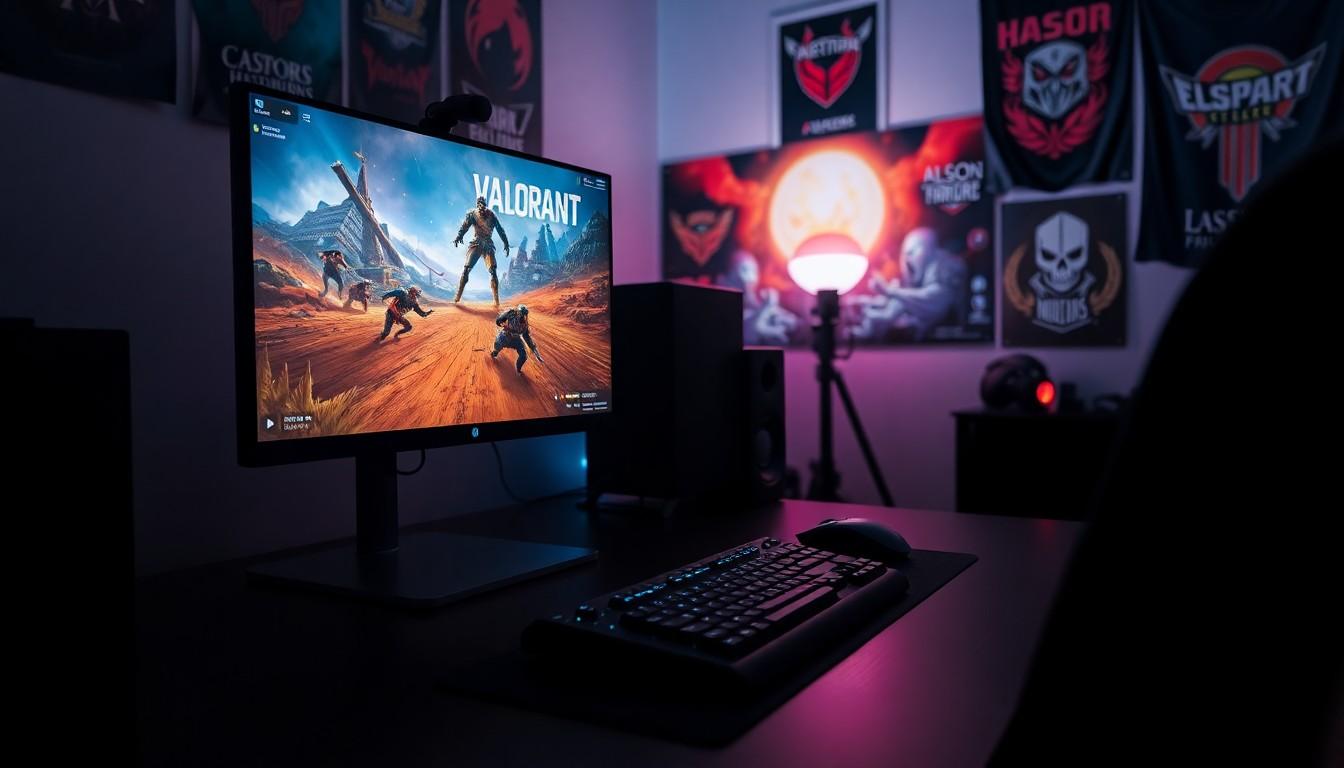Table of Contents
ToggleIn the ever-evolving world of gaming, file sizes can feel like that one friend who always shows up uninvited to the party. With Valorant making waves in the competitive shooter scene, many gamers are left wondering just how much space they need to clear on their hard drives. Spoiler alert: it’s not as scary as it sounds!
Overview of Valorant File Size
Valorant requires approximately 7.5 GB of storage space for installation. This size allows ample room for the game files, updates, and necessary data. Regular updates may increase the file size, but they enhance gameplay by adding features and patching bugs.
Optimizing game performance is a priority for developers. Consequently, Valorant’s team frequently issues updates that address technical aspects and gameplay mechanics. Users should expect occasional downloads, which can vary in size based on the nature of the patch.
System requirements for Valorant are relatively low compared to other games in its genre. Players can enjoy the game on devices with at least 4 GB of RAM and a minimum of an Intel Core 2 Duo processor. Installation on solid-state drives improves loading times and overall performance.
Storage considerations become essential when assessing multiple game installations. Managing disk space efficiently ensures that users can accommodate Valorant and other titles. Players often adopt methods such as deleting unused games or offloading files to external storage solutions.
Additionally, maintaining an organized storage system can contribute to smoother gameplay. Valorant’s reasonable file size makes it accessible for many gamers. It caters to a broad audience without burdening hard drive resources.
Factors Affecting Valorant File Size

Various elements contribute to the overall file size of Valorant, impacting how much storage space it occupies on a player’s device.
Game Updates and Patches
Each game update and patch directly influences file size. Developers roll out updates to introduce new features, fix bugs, and enhance performance. Frequent patches ensure gameplay remains stable and optimized. These updates can increase file sizes, necessitating additional storage. Installation of these updates may require players to free up space or manage existing files. Regular maintenance ensures players access the best possible experience in terms of both performance and storage efficiency.
Graphics and Resolution Settings
Graphics settings and resolution also significantly affect file size. Higher graphical settings demand more data for textures, models, and visual effects. Players opting for high-resolution settings may notice an increase in the game’s size due to additional visual content. Adjusting these settings can lead to a more streamlined file size. However, balancing visual fidelity with performance remains crucial for optimal gameplay. Players can customize their graphics to suit both aesthetic preferences and available storage.
Comparison with Other Popular Games
Valorant’s file size stands out when compared to other popular games. Many competitive shooters like Call of Duty: Warzone require significantly more space, about 100 GB for installation. Considering the amount of data needed for updates and DLC, this can create challenges for players with limited disk space.
In contrast, games such as Apex Legends demand around 22 GB for installation, while Fortnite overlaps at roughly 30 GB. These sizes are still manageable, but they illustrate how Valorant’s approximately 7.5 GB requirement makes it a lightweight option. Players often appreciate this reduced size, as it allows for more flexibility in managing storage.
Some single-player games, like Cyberpunk 2077, reach file sizes near 200 GB. This poses problems for users who may struggle to keep multiple games installed simultaneously. In comparison, Valorant’s efficient storage usage reduces overhead and allows players to focus on gameplay rather than disk management.
Frequent updates in Valorant may increase its size incrementally, but the developers strive to enhance performance and add content without overwhelming storage needs. On the other hand, games such as Destiny 2 tend to balloon in size following expansions. These frequent expansions can push storage requirements beyond 100 GB, forcing players to make difficult choices about which titles to keep.
Ultimately, Valorant’s file size, paired with its efficient updates, ensures it remains accessible for players across various devices. It prioritizes performance and maintainability, making it a practical choice for gamers looking to enjoy an immersive experience without excessive strain on their hard drives.
How to Manage Valorant File Size
Managing Valorant’s file size can improve both performance and storage efficiency. Understanding how to handle game files effectively helps players ensure optimal gameplay.
Deleting Unnecessary Files
Players often collect unnecessary files over time. Regularly clearing caches and temporary files can free up significant space. Uninstalling unused game modes or cosmetic items also contributes to reducing file size. By conducting routine maintenance, gamers maintain an organized system. Additionally, using built-in tools in the game client can streamline this process. Overall, prioritizing file management reduces clutter and enhances gaming performance.
Utilizing Storage Solutions
Utilizing external storage solutions enhances Valorant’s accessibility. Players can invest in external hard drives or SSDs for additional space. Cloud storage options provide a flexible way to save game data and settings. Choosing storage solutions with fast read/write speeds can improve loading times and performance. Organizing files across different devices helps keep everything in order. Overall, implementing these storage options allows players to enjoy Valorant without worrying about storage constraints.
Conclusion
Valorant’s manageable file size makes it an appealing option for gamers who want competitive gameplay without overwhelming storage demands. With approximately 7.5 GB required for installation and regular updates aimed at enhancing performance, players can enjoy a smooth experience while keeping disk space in check.
By understanding the factors affecting file size and employing effective storage management strategies, players can optimize their systems for the best performance. Valorant stands out among its peers not just for its gameplay but also for its efficiency in storage use, ensuring that gamers can focus on honing their skills rather than worrying about disk space issues.




